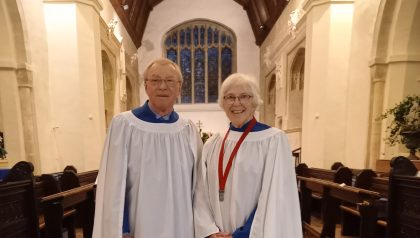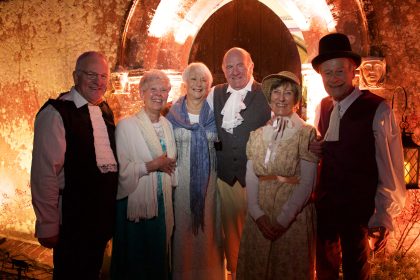The Church of England has launched a new vision for Further Education, which calls for a major shift in its engagement with the sector. The report highlights three themes, exploring how FE makes a significant difference to people’s sense of vocation, their personal transformation, and their hope for society. It is envisaged that the high-quality skill-based education of FE can be the basis for the future development of our economy including the new technology sector and emerging services industries.
There are almost 2.2 million students enrolled in 168 FE Colleges, which is twice as many 16-18-year-olds as in school sixth-forms. The Church is nonetheless underrepresented in that sector, in contrast to its extensive links with schools and universities.
In the Diocese of Winchester there are 7 Further Education Colleges covering Hampshire and East Dorset. These provide education and training to over 30,000 students and apprentices. Several churches in the Diocese also work closely with their local college through chaplaincy support and delivering joint community projects.
The report recommends that making effective partnerships with colleges should become a core part of the Church’s own planning, together with developing support for students, for community links and for chaplaincy. FE Colleges are anchor institutions for the local community, bringing people together and enriching local life.
The Vision therefore challenges the Church to reimagine its support for chaplaincy provision, one of the major ways in which it says that churches have reached out to staff and students, offering pastoral care, exploring issues of faith, belief and spirituality. Chaplains play a vital role in supporting student wellbeing and mental health and walking alongside those facing grief and loss.
It asks each diocese to look at how partnerships with local colleges can become part of everyday thinking, noting this has already begun, exploring new collaborations and work together. It recommends that, at a national level, the church considers the possibilities of forming a group of colleges as part of this wider collaboration.
Launching the new report, The Bishop of Winchester and lead bishop for FE and HE, Tim Dakin, said:
“Further Education colleges transform the lives of individuals and train many of our nation’s essential workers. They are crucial anchor institutions for communities, they cradle innovation and success, and offer new opportunities and second chances.
“We want to offer a positive vision of how the Church of England can contribute to the flourishing of further education and address our lack of systematic engagement in such an important part of our educational and social landscape.
“Our vision for further education invites and challenges church leaders to see the sector in a new light, one in which God is already actively present. It encourages appreciation of the dynamic nature of the sector, its impact upon individual lives and its valuable contributions to society.
“The Vision encourages churches to affirm and speak up for those who work and learn within further education. It points to ways in which churches can take practical steps to make these aspirations a reality in a post-Covid world.
“I hope that through local diocesan engagement with FE colleges we can contribute to key issues in the sector such as mental health and wellbeing, develop lasting relationships between churches and colleges, and build a younger and more diverse church.”
Dr Rob Rees, Director of Education at PMc and FE Consultant, reflects on the new Vision:
“I’m delighted that the Church of England has taken this step to recognise Further Education and the important role it plays in the education and training of young people, adults and apprentices and the contribution it makes to individual lives, employers and communities.
“In demonstrating the value of FE, we can bring it to the forefront of peoples’ minds when they think of training, retraining and upskilling of both young people and adults as they prepare for the world of work and to making a positive contribution to society. I look forward to seeing more engagement from the Church with the Further Education Sector.
“As Christians, we are called to be witnesses of Jesus Christ and to be agents of social transformation. FE has the ability to transform individuals and society, and this transformation is at the heart of the gospel and at the heart of further education.”
Read the report here.





